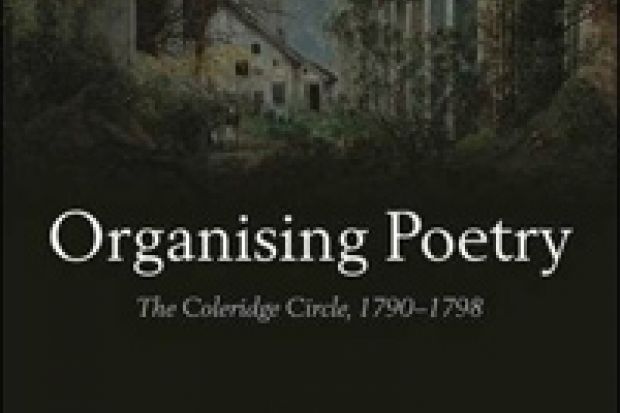If you replace the broken bowl of a pipe with a new one and then add a new stem, is it still the same pipe? Some may say it is, while others would disagree. But no matter whether you privilege continuity or discontinuity, it is clear that, whenever you speak of identity, you can't have one without the other. Continuity has to deal with the challenge of discontinuity, just as discontinuity presupposes something that is continuous.
The same is true with regard to personal identity. What is it that gives us a sense of being the same person as yesterday? John Locke said it is consciousness. But if, as John "Walking" Stewart, a friend of William Wordsworth, held, "the human body renovates the whole of its matter in the course of 18 days", what is the material basis for our belief that in spite of all changes we are still the same? David Hume argued that our sense of continuing identity is a fiction. In his impressive new monograph, David Fairer doesn't share that fundamental scepticism, but he takes it into account.
In spite of a disclaimer, his book is driven by a single, unifying thesis, which is that there is a strong 18th-century empirical tradition of "the organic" that in various ways informs the writings of "the Coleridge circle" (a term Fairer prefers to "the first generation of Romantics").
It is a "native" tradition, which, tentative and improvising, is diametrically opposed to the idea of the organic as propounded by German idealist philosophy (the bete noire of this study), with all its supposed emphasis on teleology, laws of history, holistic concepts and neat diametrical oppositions (this is not the only unintended irony of this study).
In contrast, Fairer's "native", pragmatic idea of the organic is that it is something that has to be assembled and organised, something that depends on bridging gaps (an acknowledgement of discontinuity here). Continuity has to be constructed and connectedness has to be achieved. Fairer's "organic integrity" - whether personal, historical or textual - is never found, but always made. Think of Laurence Sterne's Tristram Shandy, rather than Friedrich Schelling, Johann Gottlieb Fichte or Georg Hegel.
Organising Poetry has brilliant chapters on how Samuel Coleridge compiled his first volume of poetry, which was published in 1796, and how he assembled Sonnets from Various Authors in the same year. Fairer's account of how Wordsworth's Tintern Abbey engages in a creative dialogue with previous poems is superb, as is his close reading of the different versions of Coleridge's Monody on the Death of Chatterton, the first one written in 1790, against the backdrop of other appropriations of that tragic figure.
Fair credit is given to Thomas Warton's idiosyncratic History of English Poetry (1774) as a role model for an "organic constitution of (literary) history" ("continuities are won from a struggle with uncooperative sources, in face of a digressive impulse and a delight in details gathered from obscure sources").
And Fairer's tracing of how Coleridge "organised" his friendships with Robert Southey, Charles Lamb, Charles Lloyd and John Thelwall defines a new standard. The whole volume bespeaks an erudition and an attention to detail that are simply awe-inspiring. This is a book not only for academics interested in the poetry of the 1790s, but for anyone curious about the persistence of earlier 18th-century concepts throughout that revolutionary decade.
But it seems to me that there is a problem here. It is not so much that sometimes Fairer sets up specious alternatives for the sake of argument, or conflates too many different phenomena under "organic" - just as "to organise" simply means too many different things. This is all too understandable: in organising 12 different chapters (six of which have been published previously in different form) into an organic whole, Fairer had to find a common denominator. By the nature of things, that denominator could only be a very general one - one that brings together the organisation of a single poem as well as a collection of poetry, the organisation of a circle of friends as well as the history of poetry, into a seemingly coherent narrative. In this respect, Organising Poetry is self-referential: whatever unity or "organic integrity" the book has is conspicuously made.
No, the problem and underlying irony of Fairer's project is this: why, if he is so intent upon minor changes and differences, why, if he acknowledges that when you respond to a (chosen) precursor you enter into a dialogue by making a difference, does he credit Coleridge and his circle with so little novelty?
Originally an 18th-century man, Fairer insists that in the 1790s, Coleridge and company were basically continuing a native 18th-century empirical tradition of the organic. He insists it's the same old pipe. One might see it differently.
Organising Poetry: The Coleridge Circle, 1790-1798
By David Fairer
Oxford University Press
360pp, £50.00
ISBN 9780199296163
Published 11 June 2009
Register to continue
Why register?
- Registration is free and only takes a moment
- Once registered, you can read 3 articles a month
- Sign up for our newsletter
Subscribe
Or subscribe for unlimited access to:
- Unlimited access to news, views, insights & reviews
- Digital editions
- Digital access to THE’s university and college rankings analysis
Already registered or a current subscriber?
